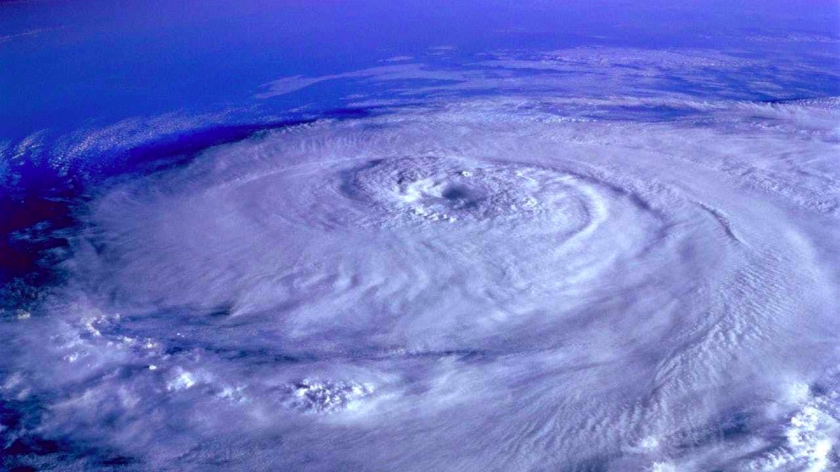-

Photo by Pixabay on Pexels.com
Do the expressions “global warming” and “climate change” refer to the very same thing? In other words: can they be used as synonyms? The answer is no – not really.
As clearly explained on the NASA website,
Global warming refers to the upward temperature trend across the entire Earth since the early 20th century, and most notably since the late 1970s, due to the increase in fossil fuel emissions since the industrial revolution. Worldwide since 1880, the average surface temperature has gone up by about 0.8 °C (1.4 °F), relative to the mid-20th-century baseline (of 1951-1980).
Climate change refers to a broad range of global phenomena created predominantly by burning fossil fuels, which add heat-trapping gases to Earth’s atmosphere. These phenomena include the increased temperature trends described by global warming, but also encompass changes such as sea level rise; ice mass loss in Greenland, Antarctica, the Arctic and mountain glaciers worldwide; shifts in flower/plant blooming; and extreme weather events.
The two terms, therefore, differ in extension: global warming is a narrower (but more precise) concept, while climate change is much broader and inclusive (but less precise). The latter lacks precision because it refers to both human-caused and nature-caused change. And as a natural phenomenon, climate change is certainly not a novelty:
The planet has experienced climate change before: the Earth’s average temperature has fluctuated throughout the planet’s 4.54 billion-year history. The planet has experienced long cold periods (“ice ages”) and warm periods (“interglacials”) on 100,000-year cycles for at least the last million years.
I am sure the quotation above would make deniers very happy, for they do love to repeat that we should not worry because “climate change has already happened in the past!”. They just forget a detail. The ongoing build-up of excess heat energy in the Earth system has some remarkably peculiar features:
Today’s global warming is an unprecedented type of climate change, and it is driving a cascade of side effects in our climate system. It’s these side effects, such as changes in sea level along heavily populated coastlines and the worldwide retreat of mountain glaciers (…), that are likely to have a much greater impact on society than temperature change alone.
If both “global warming” and “climate change” are, for different reasons, not fully appropriate expressions used to identify a global problem that could affect permanently (and not for the better) the world as we know it, why don’t we find a new term to name correctly such issue?
Some could argue this is the very last thing to consider – we must act, not discuss about labels. But labels – words – do matter: in different fields, indeed, research has explored to what extent and in which ways labels (or “framings”) may affect public views, perceptions and attitudes (see, for instance, Harris & Socia, 2016, or Bizer, Larsen & Petty, 2011). In his book The Perception of Risk (2009), psychologist Paul Slovic pointed out that
When people lack strong prior opinions (…) [s]ubtle changes in the way that risks are expressed can have a major impact on perceptions and decisions. (p. 185)
On the same topic, Dan Gardner (2009) observed that
People in the business of public opinion are only too aware of the influence seemingly minor linguistic changes can have. Magnetic resonance imaging (MRI), for example, was originally called “nuclear magnetic resonance imaging” but the “nuclear” was dropped to avoid tainting a promising new technology with a stigmatized word. In politics, a whole industry of consultants has arisen to work on language cues like these – the Republican Party’s switch from “tax cuts” and “estate tax” to “tax relief” and “death tax” being two of its more famous fruits. (p. 97)
In an age of radical political correctness in which even the word “freshmen” sounds as a discrimination towards women, we are constantly looking for neutral, harmless labels to be used in the public discourse. “Climate change” may have become so widespread precisely for its substantial neutrality and innocuousness: a quite broad, vague expression that even deniers can employ to claim their groundless arguments. Climate change… Well, climate is always changing! And we are not 100% sure it is changing because of us! Why should we really care?
The expression “climate crisis” may represent a more effective way to identify the highly complex system of collateral effects produced only by global warming: it is narrower, more precise and has political weight. The word “crisis” derives from the Latinized form of Greek krisis and can be used to describe a “vitally important or decisive state of things”, a “point at which change must come, for better or worse”.
A point at which change must come, for better or worse. Emphasizing that global climate has reached a turning point which may take (actually, is already taking) a very bad turn does not mean frightening people – it is, instead, an objective, fair statement that should help them to open their eyes.
A turning point requires decision and action, and has therefore a sociopolitical meaning that cannot be implied by a pale expression like “climate change”. If we begin changing the way we talk, we may also start to shape differently the way we think – and act.
Want to know more?
Bizer, G. Y., Larsen, J. T., & Petty, R. E. (2011). Exploring the valence‐framing effect: Negative framing enhances attitude strength. Political psychology, 32(1), 59-80.
Gardner, D. (2009). Risk: The science and politics of fear. London: Virgin.
Harris, A. J., & Socia, K. M. (2016). What’s in a name? Evaluating the effects of the “Sex offender” label on public opinions and beliefs. Sexual Abuse: A Journal of Research and Treatment, 28(7), 660-678. doi:10.1177/1079063214564391
Slovic, P. (2000). The perception of risk. London: Earthscan Publishing.


It’s amazing that we were both considering the naming issue. I can’t agree with you any more! Words are critical, and “climate crisis” seems to be a perfect term – while I’m obsessed with alliteration, your reasons are comprehensive. Are you the only inventor of the term? Is it also part of your thesis (I hope so)? You may remember that “crisis” in Chinese means both danger and opportunity – I think this point would enhance the etymology. By the way, I’m glad to see that you appear not to be a sexist in the example of “freshman”…
LikeLike